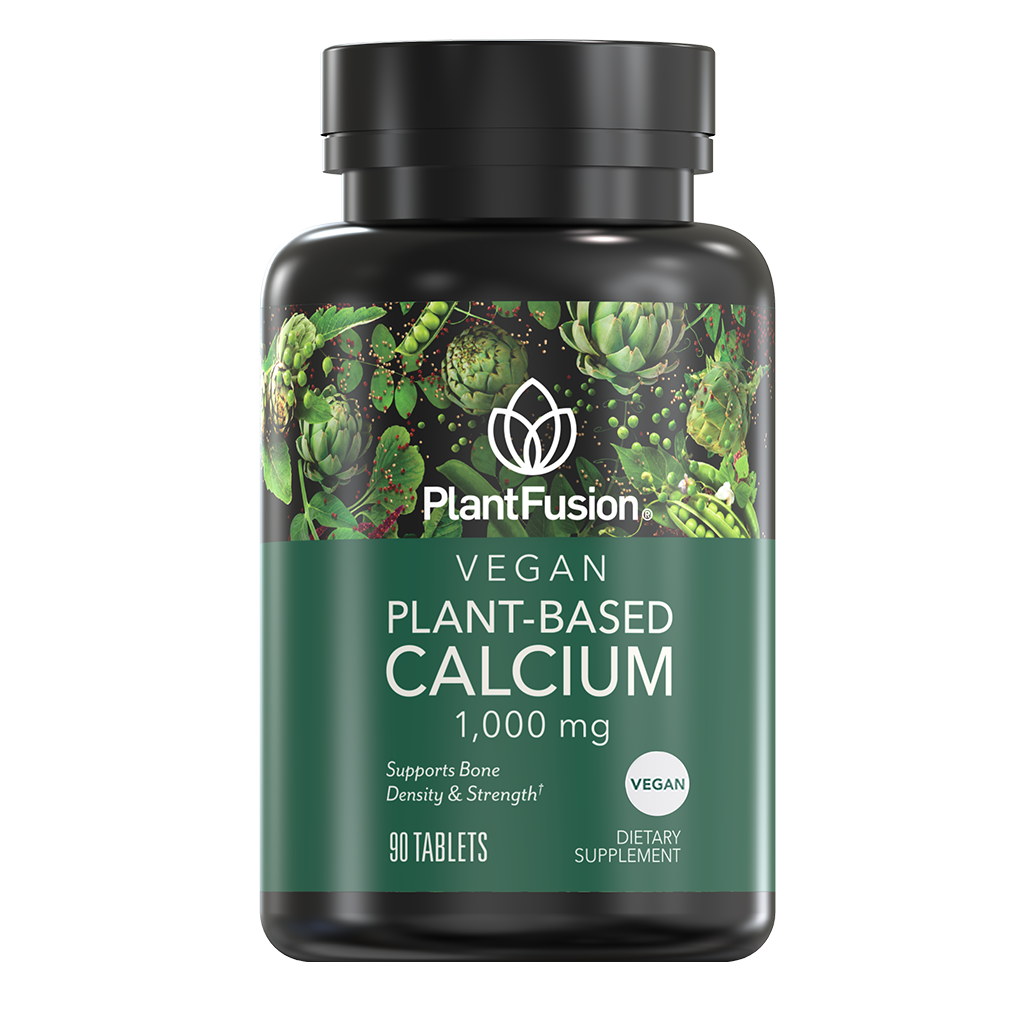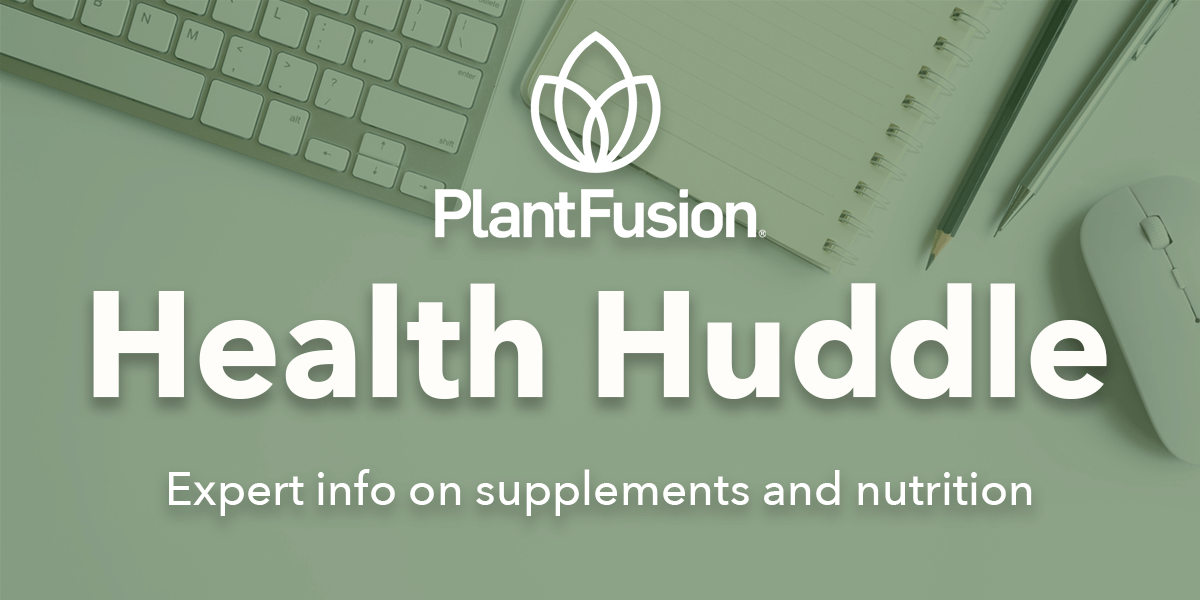There is no doubt that a plant-based lifestyle is being embraced by more people than ever before. At the same time, a record number of consumers are turning toward supplements to help them fill in their nutritional gaps, power up their immune systems, and address other health concerns.
This focus on natural health solutions includes a desire for natural beauty options, as well. Whether it is products to improve skin, hair and nails, or a wish to avoid chemicals in anything we are putting on our skin, natural skin care is a growing market, and one of the most frequently asked questions we hear is "Can I get collagen from a plant?"
To answer that question, let's take a closer look at what collagen is, the three main collagen supplement options available on the market today, and how they may (or may not!) work to provide the body with collagen.
➤ CLICK HERE to check out PlantFusion's full line of plant-based collagen builders and boosters!
What is Collagen?
Collagen is often described as "the glue that holds your body together." In fact, the Greek word "Kolla" directly translates to "glue!" Believe it or not, there are actually at least 16 types of collagen. Most people are familiar with three main types:
- Type I – which accounts for 90% of the body’s collagen, and provides structure to skin, bones, tendons, connective tissue, and teeth.
- Type II – which cushions the joints, which is why we see this type used mostly in arthritis and joint health supplements.
- Type III – which supports the structure of muscles, organs, and arteries.
Collagen is a protein, and all proteins are primarily made up of building-blocks called amino acids. Different types of protein will contain different blends of amino acids, but the amino acids that make collagen are found only within the skin and tissue of animals. This unique amino acid combination does not naturally occur in plants.
So how do we meet the needs of a vegan/vegetarian seeking the health benefits of a natural collagen food source? Thankfully, we don't need to consume animal collagen in order to build our own collagen.

There are three main types of collagen presently available as a dietary supplement:
1. Animal-Based Collagen
2. Marine-Based Collagen
3. Plant-Based Collagen Building Products
Harnessing the Power of Plants to Help Your Body Make Its Own Collagen

Consuming an animal-based collagen or collagen peptide supplement does not help your body to make collagen. Collagen synthesis is complicated, and requires many complimentary compounds such as vitamins, minerals, and antioxidants - and some of these nutrients can only be sourced from plants! These essential elements support the body’s natural collagen production by providing the ingredients needed to build the collagen protein, a process that begins with a precursor called procollagen.
Procollagen is a molecule made primarily from vitamin C and protein. As procollagen molecules get produced, they start to wind together into fibrils. (Think of a loose thread on a sweater… one fibril is a part of many that, when woven together, make up the sweater.) These fibrils grow and begin to tightly bundle themselves, and eventually take the form of larger collagenous fibers, that then make up our skin, ligaments, tendons, hair, and nails.
The Benefits of a Plant-Based Collagen Building Supplement
We know that collagen is the most abundant protein in the body, and is the major component (or the "glue!") in our connective tissues. It provides our skin with structure, helping it look plump, youthful, and wrinkle-free.† It also works to help strengthen our bones, and may keep our joints from aching.† There is even some research that shows collagen supports heart health!
But there are many common, everyday factors (such as aging, poor diet, UV sun exposure, smoking, and alcohol) that can slow down or negatively impact our natural collagen production, which is why supplementation with a plant-based collagen can be so beneficial.
Plant-based collagen products are full of anti-aging compounds that all work together to help firm skin, smooth wrinkles, boost skin hydration, and support overall wellness.† Vitamin C in particular is essential for the creation of procollagen, but also in maintaining the strength and health of the collagen that is created. It can help to repair skin tissues, preserve skin elasticity, and, as an antioxidant, fight free radicals that can cause damage to the skin. Here are some other plant-based powerhouse ingredients that do even more than help the body build collagen:
- Alma fruit is a relative newcomer, but it's a heavy-hitter when it comes to benefits. Sometimes called "Indian Gooseberry", less than a half cup of fresh amla berries contains as much vitamin C as 20 oranges! Used in Ayurvedic medicine for over 1,000 years, amla has well-documented collagen-building properties.
- The antioxidant benefits of white tea are fairly well-known at this point, but one particular concentrate of white tea (sold under the
trademark Oxyphyte™) is especially potent in supporting healthy antioxidant levels and protecting collagen fibers.

- SkinAx²™ is a unique clinically studied formula of natural antioxidants combining French grape seed and melon extracts. Rich in polyphenols, it helps to preserve elasticity and suppleness for smoother, brighter skin.
- Hyaluronic acid binds collagen with elastin – the two most important structural components of skin and joints. It also aids in hydration of skin and joints.
- Skin ceramides make up 35-40% of the natural fats that bind together skin cells. PhytoCeramides help to restore and replenish skin and joints for greater hydration.
At the end of the day, even if ethics doesn't play a role, science does seem to overwhelmingly support that the benefits of plant-based collagen supplements go well beyond delivering the basic (and possibly unhelpful) protein of animal-based collagen. These natural, plant-based ingredients can help the body to build, hydrate, and protect healthy collagen in skin, nails, and hair, with complex, essential nutrients that provide highly important benefits for our overall health.
Check out PlantFusion’s carefully crafted line of collagen builders and boosters to discover natural products that can help to build, hydrate, nourish, rebuild and protect essential collagen.
†These statements have not been evaluated by the Food and Drug Administration. The information in this blog is not intended to diagnose, treat, cure, or prevent any disease.















